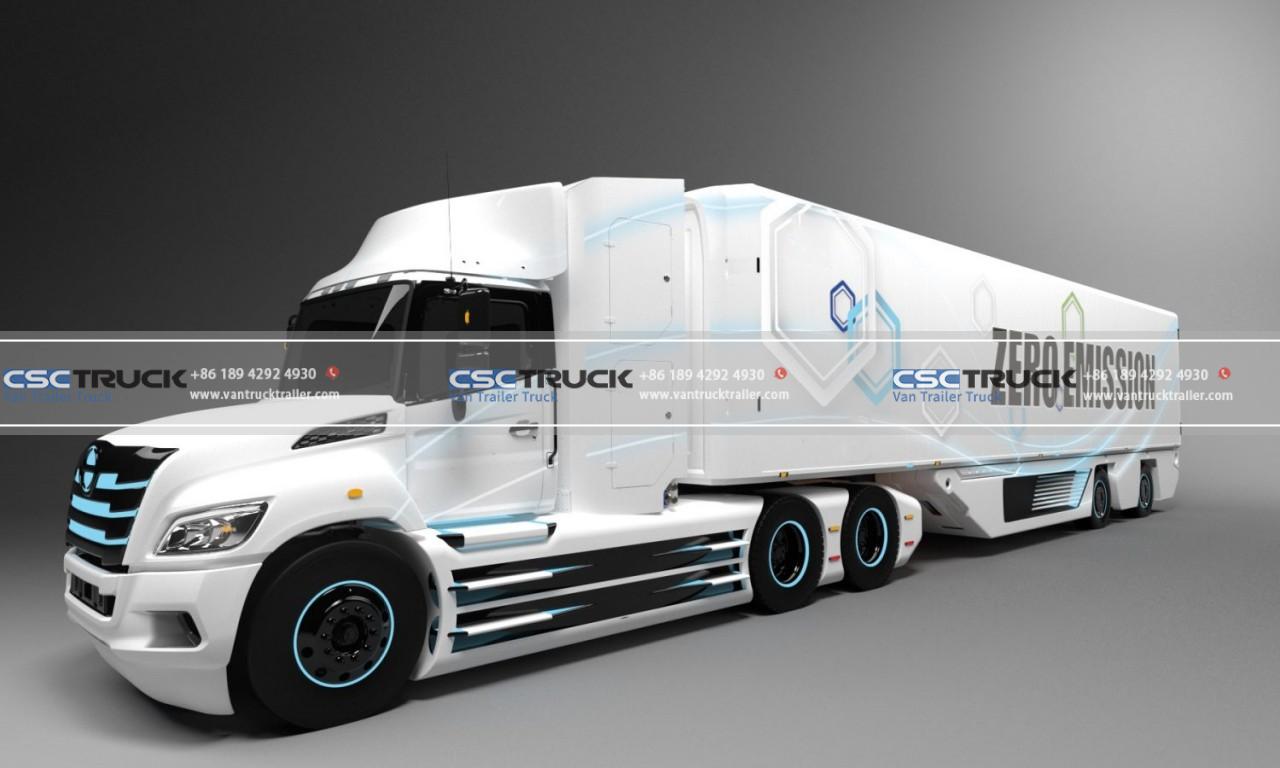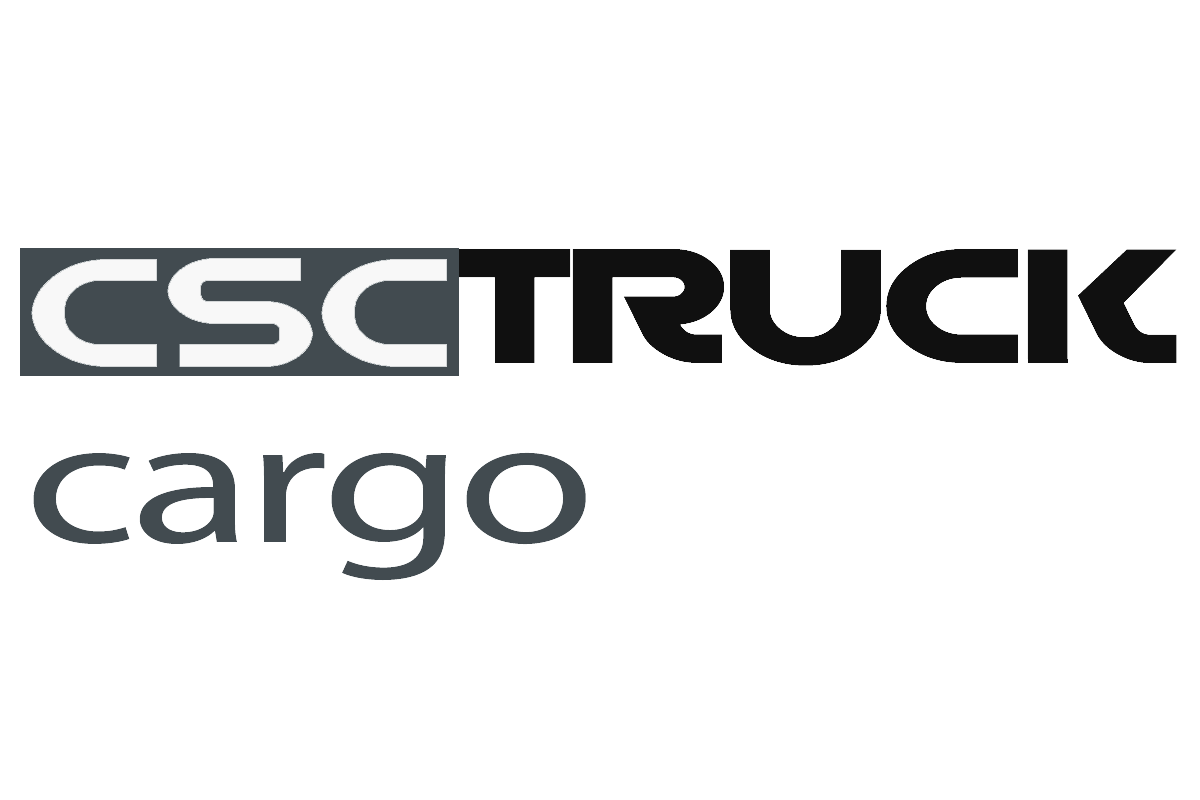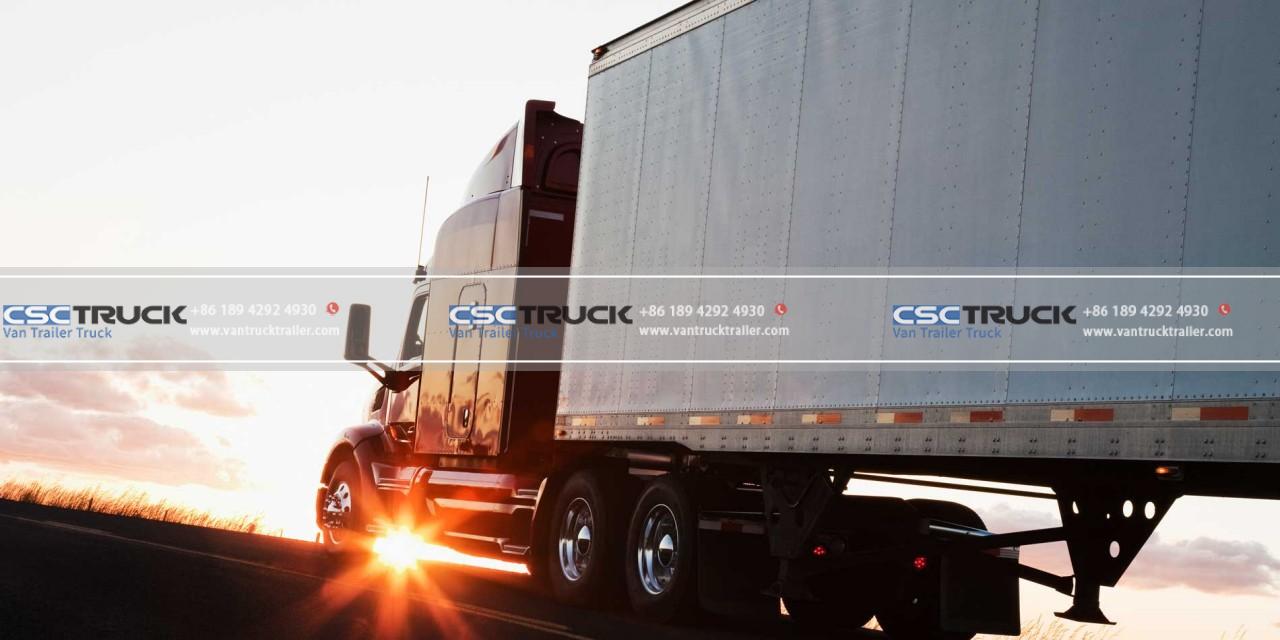The transportation industry is constantly evolving, driven by advancements in technology, changing market demands, and a greater focus on sustainability. Van and trailer trucks, being the backbone of freight transportation, are not immune to these developments. The future of van and trailer trucks is shaping up to be an exciting amalgamation of innovative design and cutting-edge technology. In this blog post, we will explore some of the key trends and advancements that are revolutionizing the future of these essential vehicles.
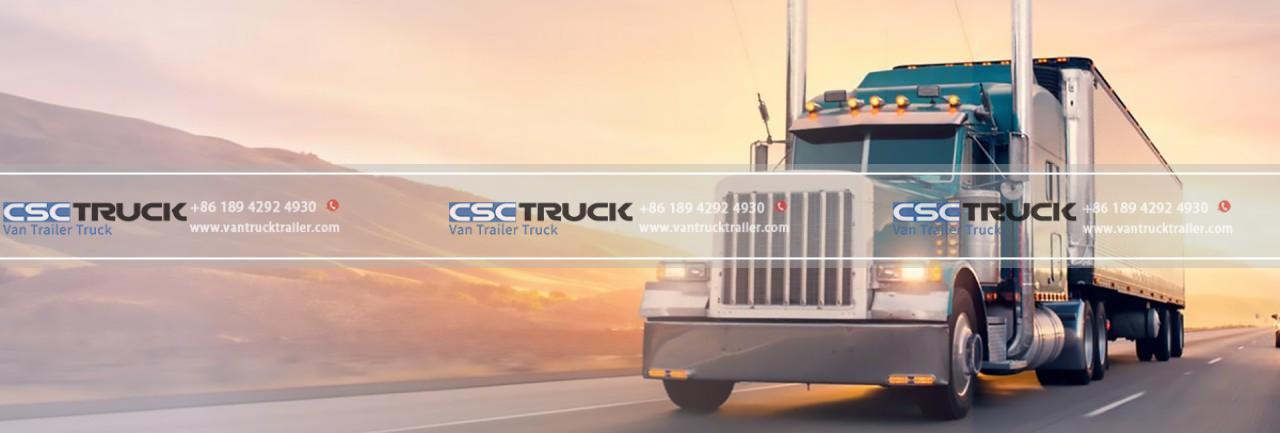
- Electric and Hybrid Powertrains: One of the most significant shifts in the trucking industry is the move towards electric and hybrid powertrains. As concerns about emissions and environmental impact grow, van and trailer trucks are being designed to be more sustainable. Electric and hybrid trucks offer several advantages, including reduced carbon footprint, quieter operation, and lower fuel costs. With advancements in battery technology, range anxiety is becoming less of a concern, making electric and hybrid trucks a viable option for long-haul transportation.
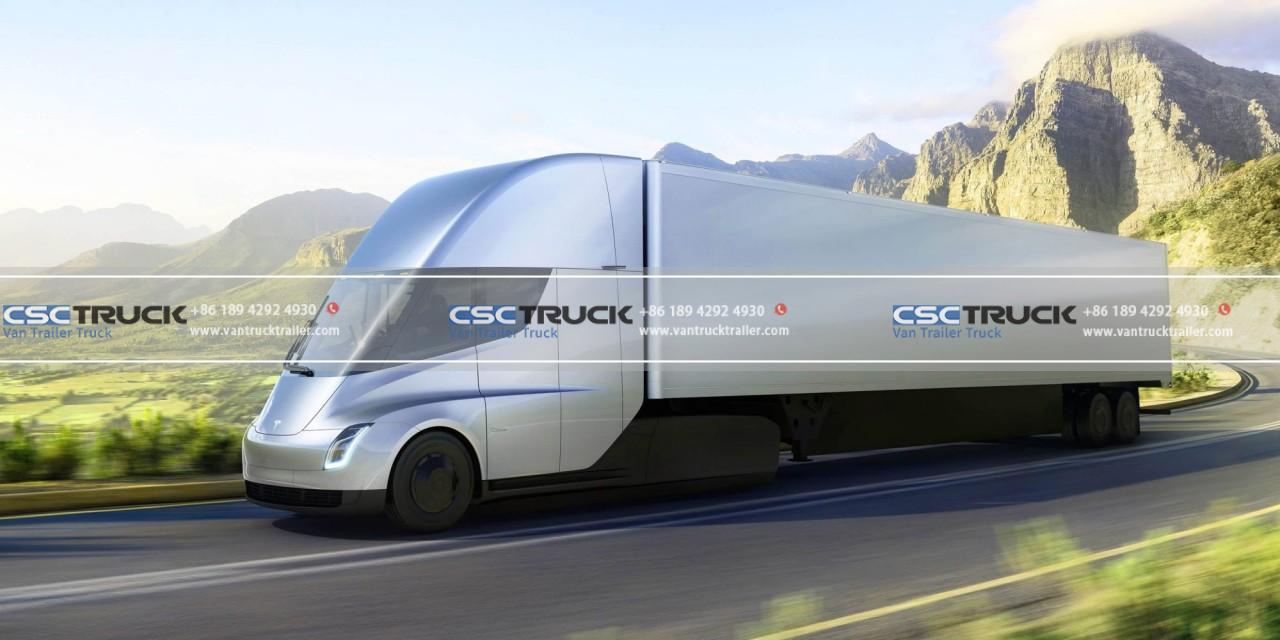
- Autonomous Driving Technologies: Autonomous driving technologies have the potential to transform the trucking industry. Van and trailer trucks are equipped with advanced sensors, cameras, and artificial intelligence systems that enable them to operate autonomously under certain conditions. Autonomous trucks can enhance safety, improve fuel efficiency, and optimize logistics by eliminating human error and allowing for continuous operation. While fully autonomous trucks may still be a few years away, we can expect to see a gradual adoption of autonomous features in the coming years.
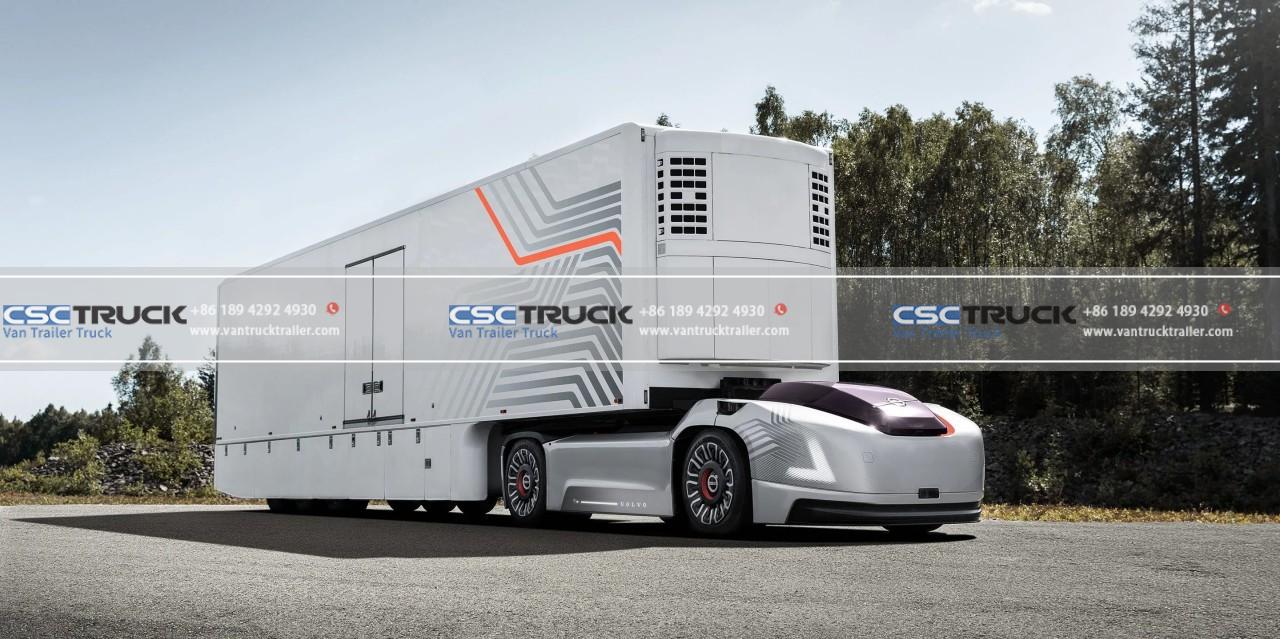
- Telematics and Connectivity: The future of van and trailer trucks is all about connectivity. Telematics systems that integrate GPS, communication, and data analytics are becoming increasingly common. These systems provide real-time monitoring of vehicle performance, fuel efficiency, and driver behavior. They also enable fleet managers to optimize routes, track deliveries, and analyze data for improved operational efficiency. Connectivity also extends to the integration of trucks with other systems, such as warehouse management systems or smart traffic control, allowing for seamless information exchange and enhanced logistics coordination.
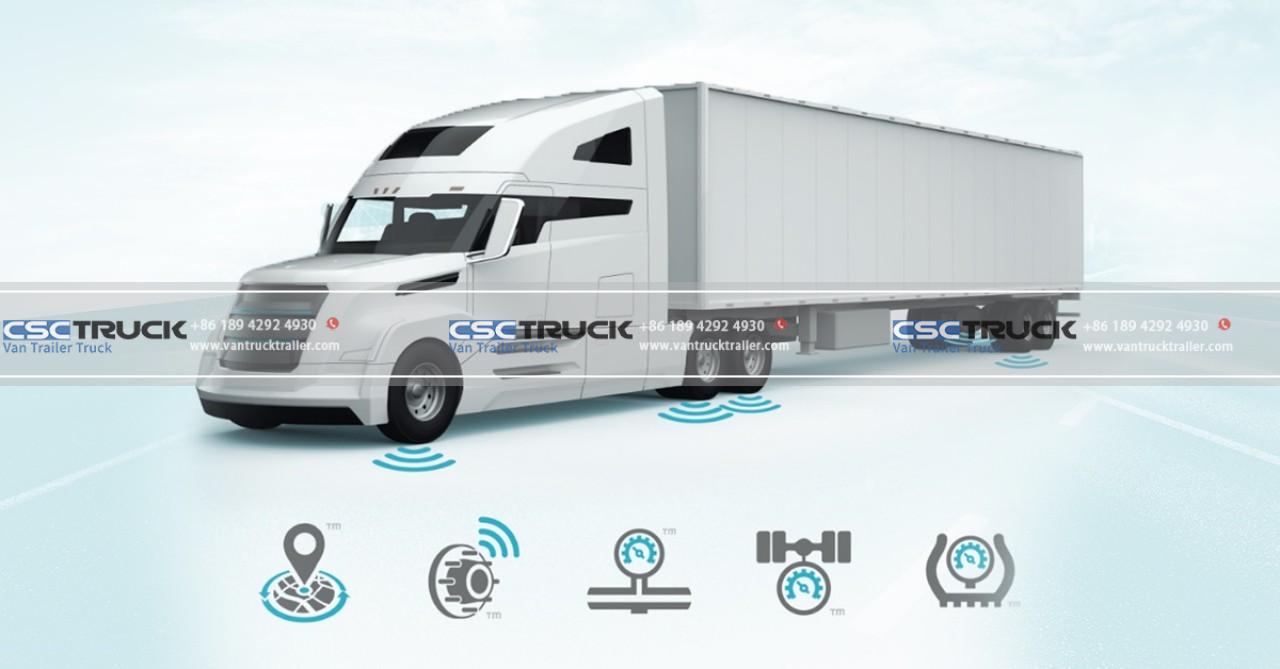
- Aerodynamic Design: Fuel efficiency is a key focus in the design of future van and trailer trucks. Streamlined, aerodynamic designs are being employed to minimize drag and reduce fuel consumption. Innovations such as wind deflectors, roof fairings, and side skirts help optimize airflow and improve overall vehicle efficiency. By reducing aerodynamic resistance, these design enhancements contribute to fuel savings, lower emissions, and increased range.

- Lightweight Materials: The use of lightweight materials is gaining momentum in the trucking industry. Advanced composite materials, aluminum alloys, and high-strength steel are being employed to reduce the weight of van and trailer trucks without compromising structural integrity. Lighter trucks result in increased payload capacity, improved fuel efficiency, and reduced wear on tires and other components. Additionally, the adoption of lightweight materials contributes to lower emissions and a more sustainable transportation ecosystem.
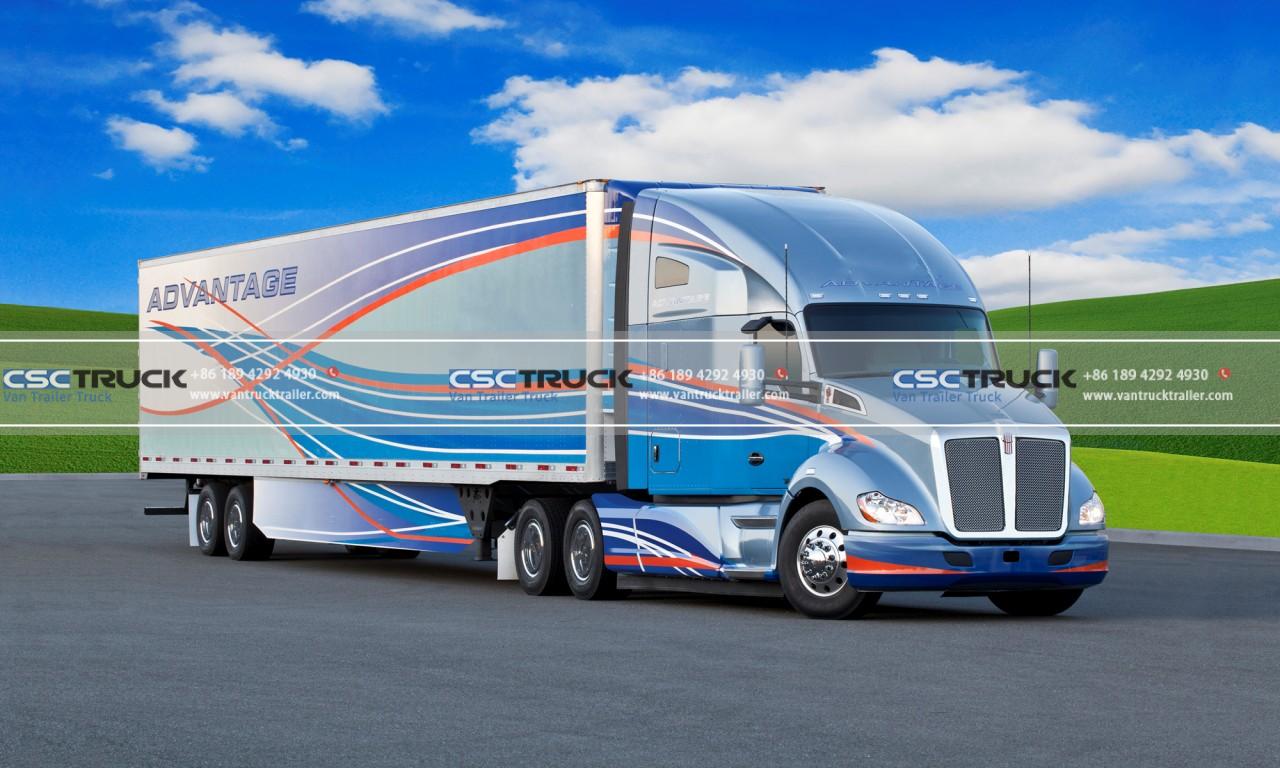
- Safety Features: Safety remains a top priority in the design of future van and trailer trucks. Manufacturers are incorporating advanced safety features such as collision avoidance systems, adaptive cruise control, lane departure warning, and blind-spot detection. These technologies help mitigate the risk of accidents and enhance driver awareness, improving overall road safety. Additionally, advancements in camera systems and visibility aids are providing drivers with a comprehensive view of their surroundings, reducing blind spots and increasing overall situational awareness.
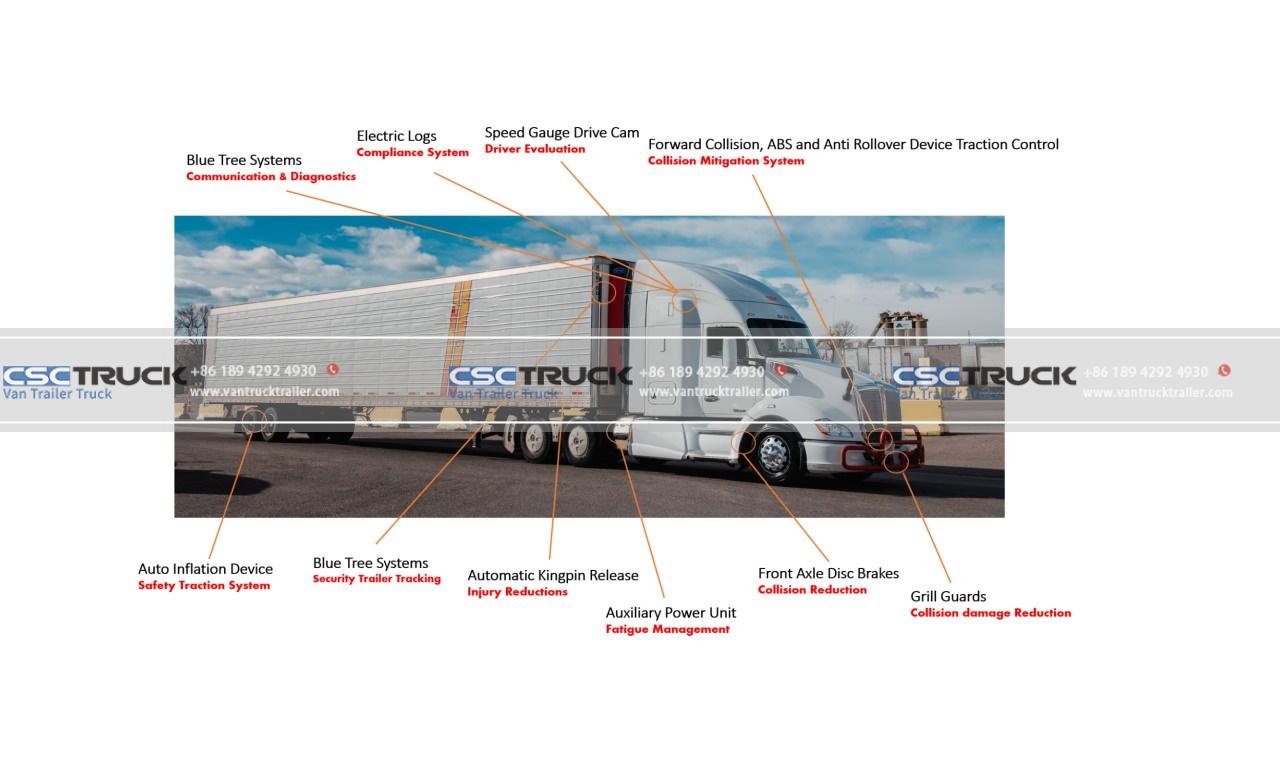
- Improved Cargo Handling: Efficient cargo handling is essential for streamlined operations. Future van and trailer trucks are being designed with innovations to simplify loading and unloading processes. Features such as hydraulic lifts, automated loading systems, and adjustable cargo compartments enhance efficiency and reduce handling time. Additionally, smart cargo tracking systems and RFID technology enable real-time monitoring and ensure the security of valuable or sensitive shipments.
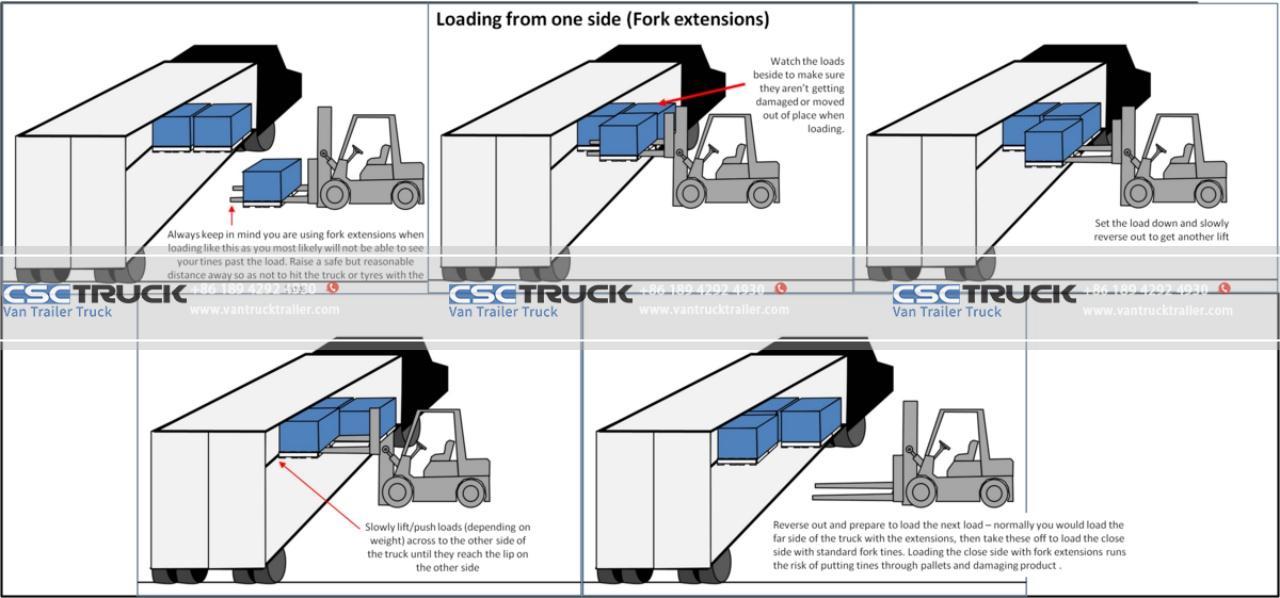
- Predictive Maintenance: The future of van and trailer trucks includes the integration of predictive maintenance systems. By utilizing sensors and data analytics, these systems can monitor the health of various components and predict potential failures before they occur. This proactive approach to maintenance allows fleet managers to schedule repairs or replacements in advance, minimizing downtime and reducing overall maintenance costs. Predictive maintenance not only enhances vehicle reliability but also improves operational efficiency by preventing unexpected breakdowns and optimizing maintenance schedules.
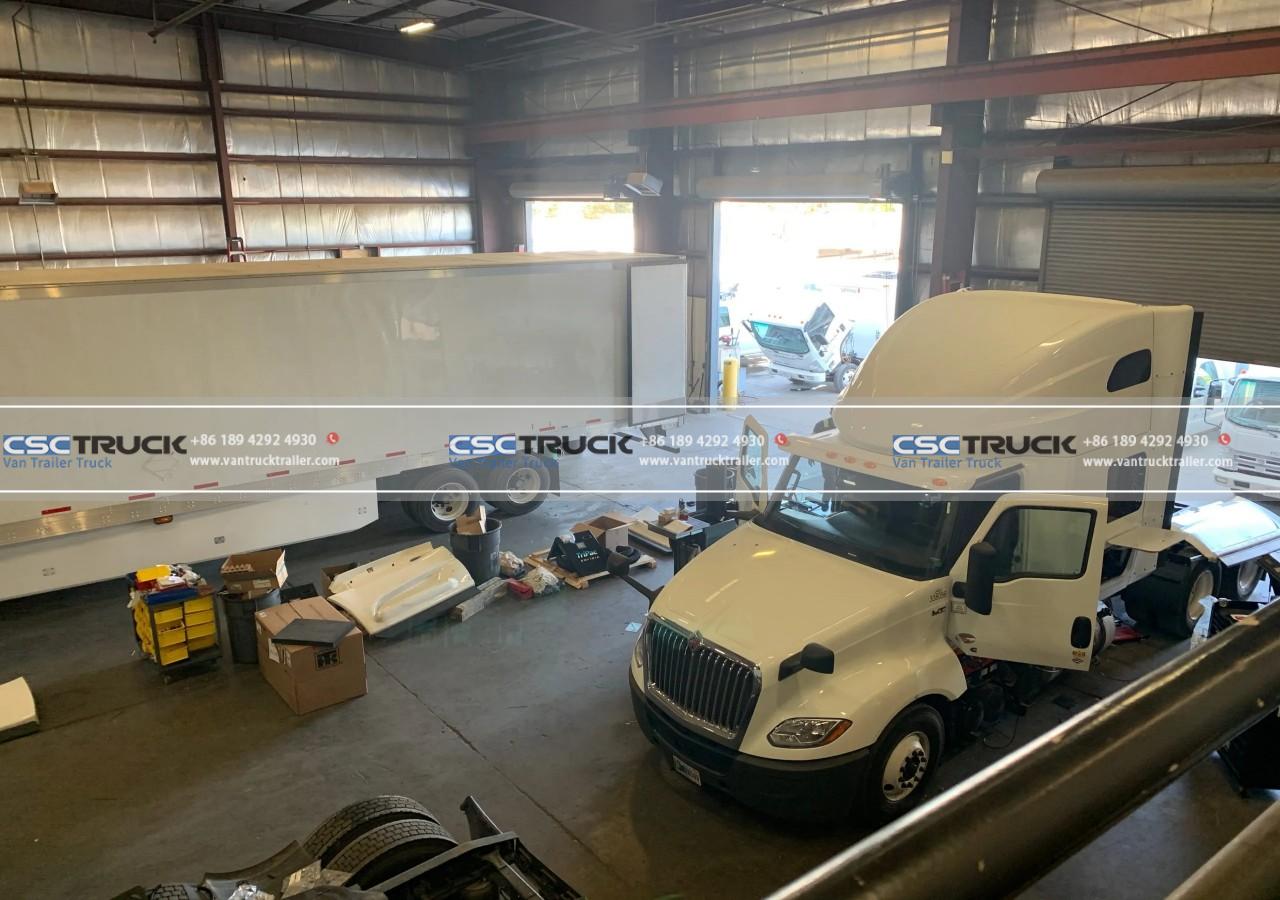
- Enhanced Driver Comfort and Well-being: Recognizing the importance of driver comfort and well-being, future van and trailer trucks are incorporating features to enhance the driver experience. Ergonomically designed cabins, adjustable seats, and improved noise insulation contribute to reduced driver fatigue and increased comfort during long-haul journeys. Furthermore, advanced infotainment systems, connectivity options, and driver assistance technologies make the driving experience more enjoyable and convenient, promoting driver satisfaction and retention.
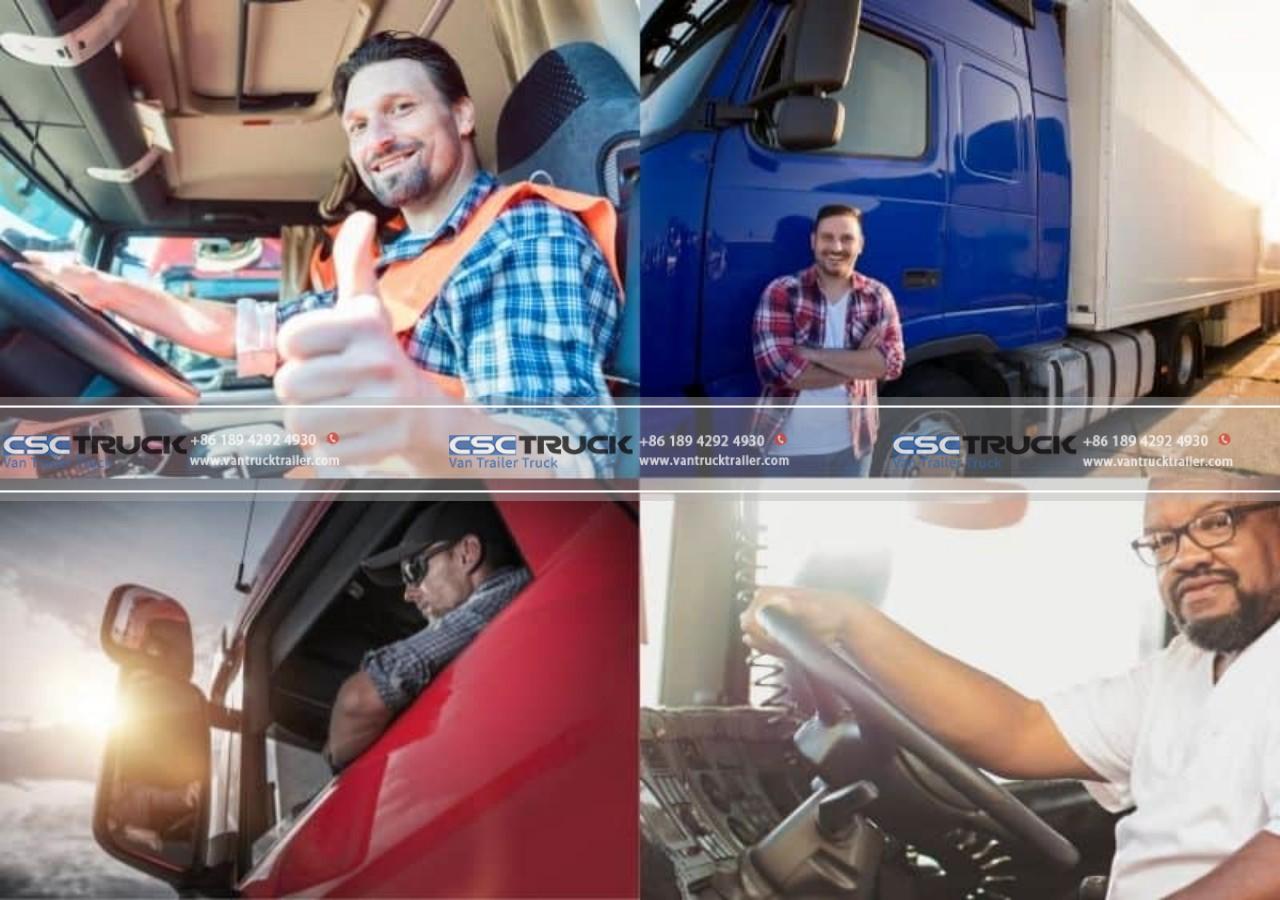
- Sustainability Initiatives: As the world becomes more conscious of sustainability, van, and trailer trucks are embracing eco-friendly initiatives. Manufacturers are exploring alternative fuel options, such as hydrogen fuel cells and renewable natural gas, to further reduce emissions. Additionally, some companies are implementing circular economy practices, focusing on recycling and reusing materials in the manufacturing and maintenance processes. These sustainability initiatives not only benefit the environment but also align with the growing expectations of customers who prioritize eco-friendly transportation solutions.
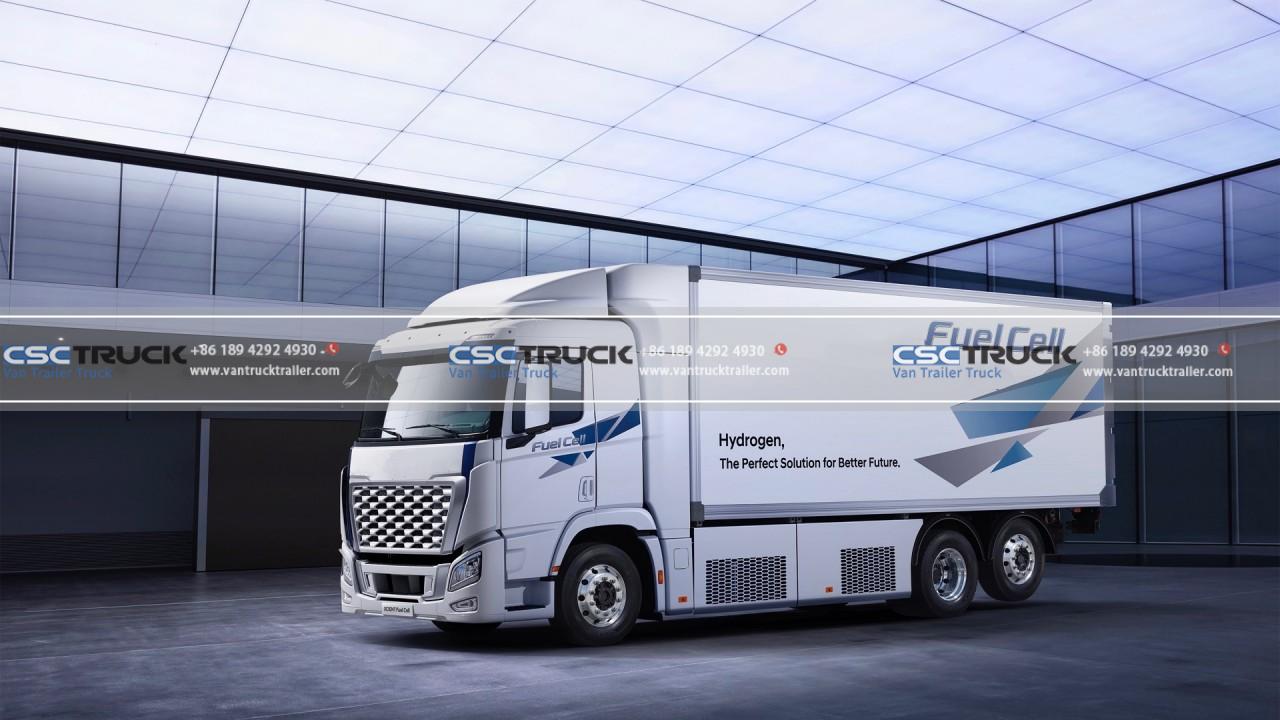
In conclusion, the future of van and trailer trucks is characterized by remarkable advancements in design and technology. Electric and hybrid powertrains, autonomous driving technologies, telematics, aerodynamic design, lightweight materials, enhanced safety features, improved cargo handling, predictive maintenance systems, driver comfort, and sustainability initiatives are all shaping the future of these essential vehicles. As the industry evolves, embracing these innovations will lead to more efficient and sustainable transportation, reduced operating costs, enhanced driver satisfaction, and ultimately, a more interconnected and eco-friendly global supply chain. Stay tuned for exciting developments as the future unfolds, revolutionizing the way goods are transported and delivered across the world.
